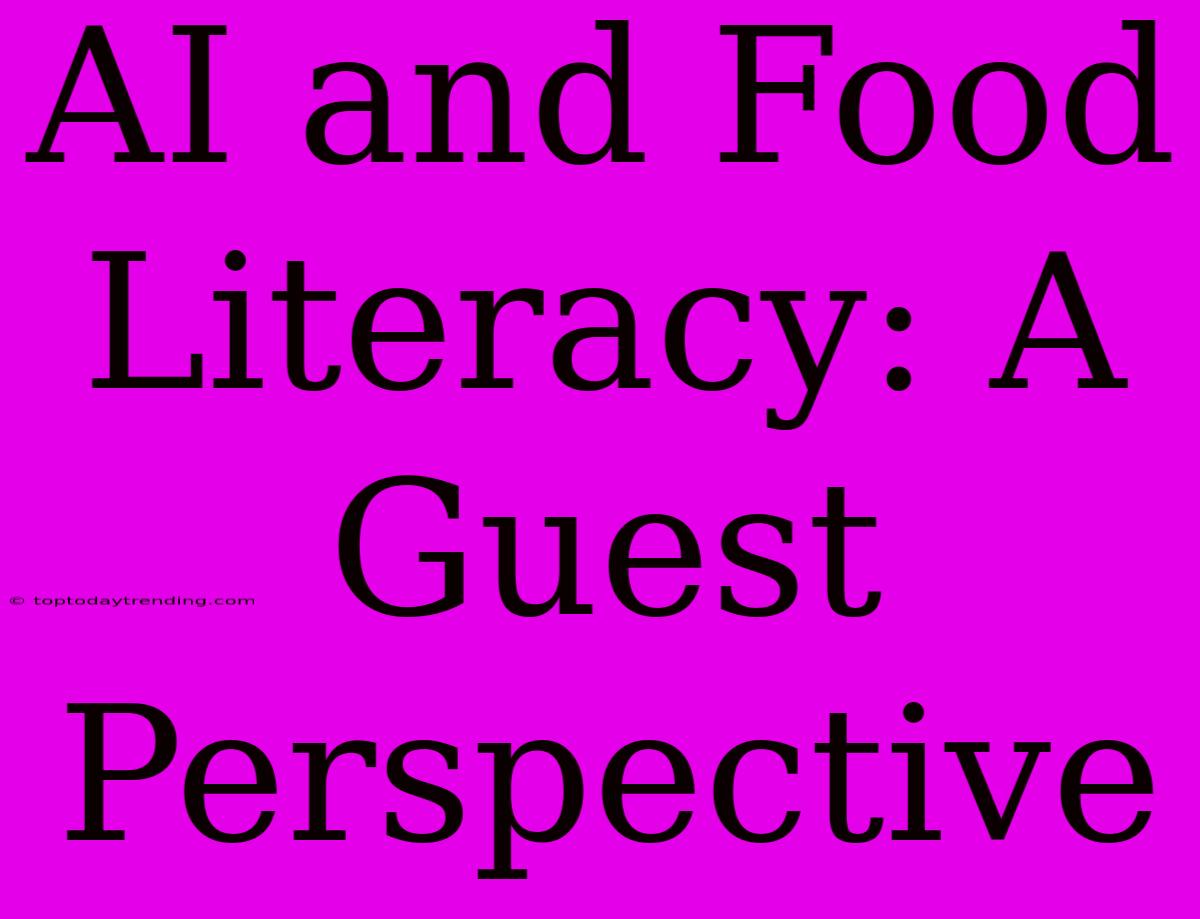AI and Food Literacy: A Guest Perspective
The world is rapidly changing, with technology transforming how we live, work, and even how we eat. Artificial intelligence (AI) is increasingly playing a pivotal role in our food systems, impacting everything from farm management to what ends up on our plates. But what does this mean for food literacy, the knowledge and skills necessary to make informed food choices?
This is a question that has been weighing on my mind as a guest in the world of AI and food. I am not an expert in the field, but I am a passionate advocate for food literacy and its crucial role in building a healthier and more sustainable future. Through my own experiences, I have witnessed the power of knowledge when it comes to food, and I am fascinated by the potential AI holds to enhance it.
Bridging the Knowledge Gap
One of the most promising aspects of AI is its ability to bridge the gap between information and action. Traditionally, accessing reliable food knowledge has been a challenge. It requires navigating complex scientific studies, sifting through conflicting dietary recommendations, and understanding the complexities of our food systems. AI can simplify this process by:
- Personalized Nutrition Guidance: AI-powered apps and platforms can leverage data on individual needs, preferences, and health goals to provide customized dietary recommendations and meal plans. Imagine a world where your phone can suggest recipes tailored to your specific dietary restrictions or recommend healthier alternatives based on your current meal choices.
- Accessible Food Education: AI can empower educators by developing interactive learning tools, personalized learning paths, and engaging virtual reality experiences that make food education more accessible and enjoyable. It can bridge the geographic and financial barriers that often prevent people from accessing quality food education.
- Disseminating Research and Knowledge: AI can effectively analyze and disseminate research findings related to nutrition, food production, and food security. It can help translate complex scientific data into easily digestible formats, making it accessible to a wider audience.
Addressing Food Insecurity and Sustainability
The impact of AI on food literacy goes beyond individual well-being. It has the potential to significantly impact global challenges like food insecurity and environmental sustainability:
- Optimizing Food Production: AI can analyze data from various sources to optimize food production, improve crop yields, and minimize waste. This could lead to more efficient food systems that can better meet the needs of a growing population.
- Combatting Food Waste: By utilizing AI-powered tools, food businesses can better predict demand, manage inventory, and develop strategies to minimize food waste throughout the supply chain.
- Promoting Sustainable Practices: AI can help farmers and food producers adopt sustainable practices, such as precision agriculture techniques and optimized resource management, contributing to a greener and more resilient food system.
The Ethical Considerations
While the possibilities are exciting, it is crucial to acknowledge the ethical considerations surrounding AI and food literacy:
- Data Privacy and Security: The use of AI in food systems raises concerns about data privacy and security. It is essential to ensure that personal information is used responsibly and ethically, respecting individual privacy.
- Accessibility and Equity: The benefits of AI should be accessible to everyone, regardless of socioeconomic status or location. We need to ensure that AI solutions are developed and implemented in a way that addresses existing inequalities in food access and literacy.
- Trust and Transparency: To build trust in AI-driven food systems, transparency is crucial. Consumers need to understand how AI algorithms work and how their data is being used.
A Call to Action
AI has the potential to revolutionize food literacy, empowering individuals and shaping a more sustainable food system. However, it is essential to approach this development with caution, considering the ethical implications and ensuring equitable access to its benefits.
As a guest in this exciting field, I urge everyone to participate in the conversation. We must work together to shape the future of AI and food literacy, ensuring that it benefits all.

